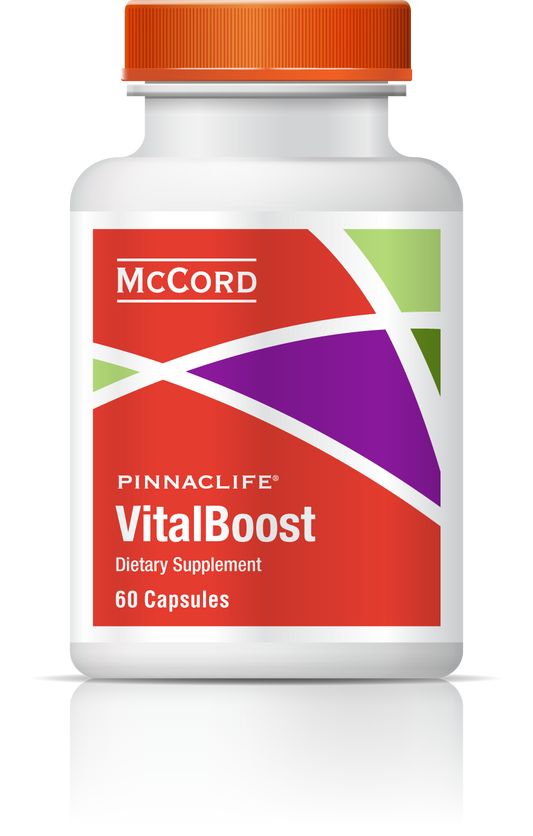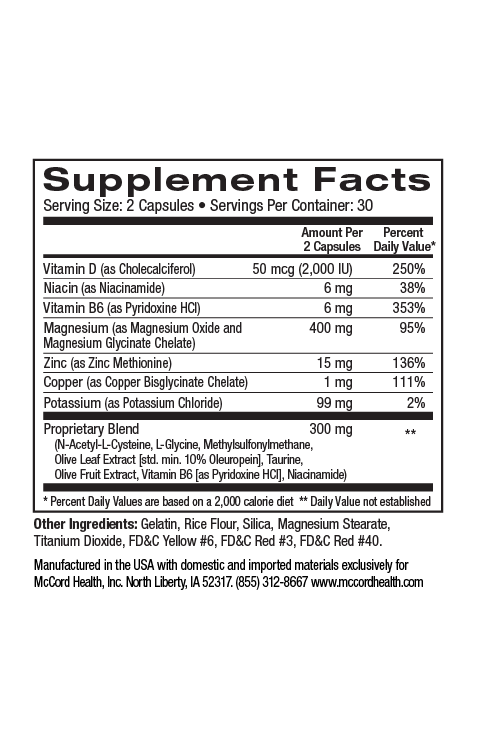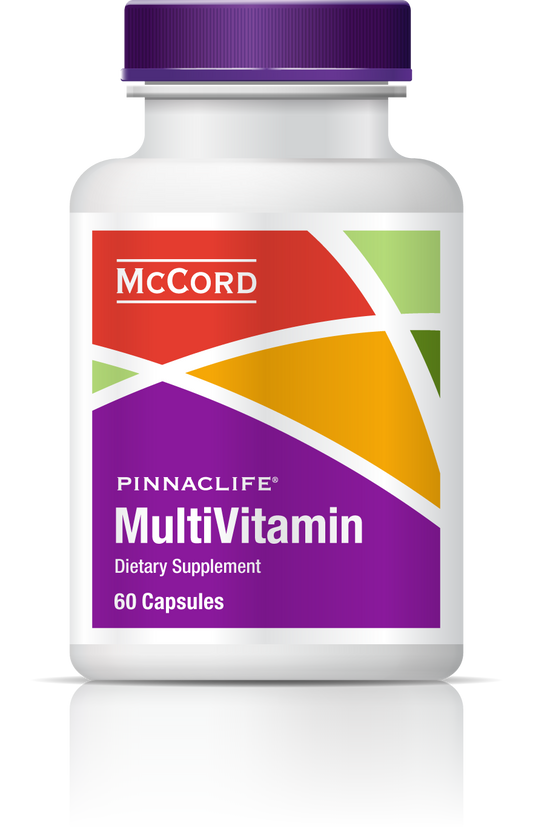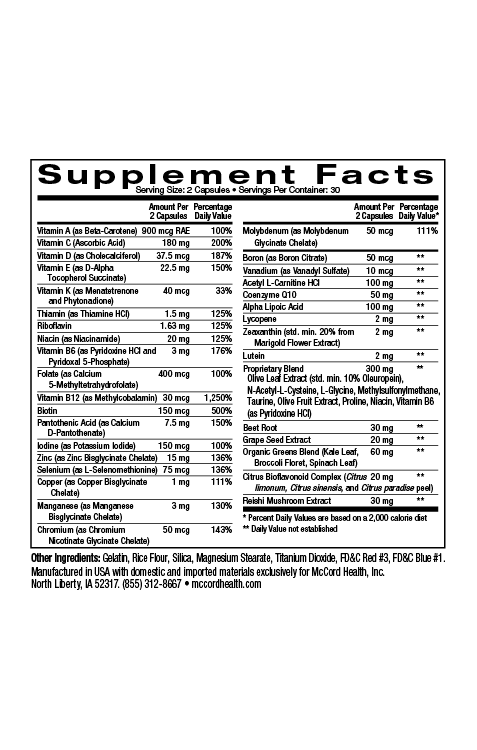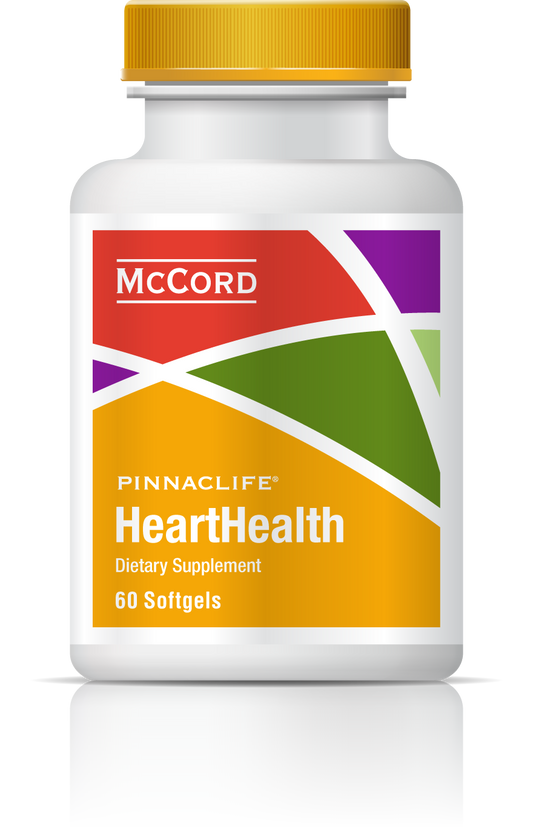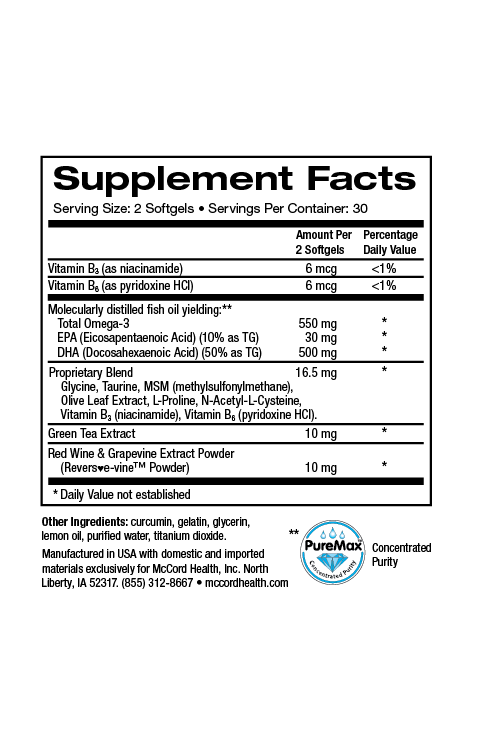Your diet provides the body with necessary nutrients to support metabolic activity, especially during exercise and physical activity. Failure to provide adequate nutritional support from vitamins, minerals, antioxidants, and amino acids can contribute to oxidative stress and metabolic dysfunction.
- Your diet is supposed to provide your body with essential nutrients
- Exercise increases your body's demand for those nutrients
- If your diet doesn't provide the necessary nutrients, your body suffers the consequences
- Exercising without adequate nutrient intake can harm your body
- Nutritional support is essential for all levels of physical activity
- Supplements can help fill gaps left by the diet
Tell me More!
Exercise, nutrition, and weight loss all comes down to simple economic concepts of supply and demand. Every cell in your body demands certain things to function properly, and we need to supply the cells with exactly what they demand to promote health.
The whole purpose of eating food is to supply the body with nutrients the cells are demanding. They demand energy (calories) plus the vitamins, minerals, antioxidants, amino acids, and more. Those nutrients are needed to produce vital cellular components like DNA, cell membranes, proteins, connective tissues, hormones, and more.
Low Calorie Count Does Not Always Mean it's Healthy
When you aren't very active, it lowers your body's demand for energy (calories), and it becomes easier to consume more calories than the body needs. This causes weight gain and can lead to chronic diseases.
For decades, the approach to weight loss has been primarily focused on increasing your body’s demand for calories by exercising more, and reducing the supply of calories by eating less.
While this is usually effective for short-term weight loss, it is not enough because your body does not simply run on the economics of calories consumed vs. calories burned. There are other metabolic processes that have nutritional demands that must be met.
Understanding Physical Activity and Metabolic Demand
There are countless benefits to increasing physical activity and exercise, but most people already know this.
Consider that exercise does more than simply burn calories. Exercise essentially speeds up our metabolic processes - so your body uses micronutrients and creates metabolic waste products at a higher rate.3 This increases the demand for all of the biochemical tools needed for healthy metabolism and for neutralizing and eliminating harmful waste.1,2
Also consider that exercise helps build bigger and stronger muscles. You can’t build strong muscles without the proper building supplies. Despite the popular trends, the proper supplies include more than a sugar-filled protein powder shake. Your body demands more vitamins, minerals, and antioxidants to keep the cells healthy on a biochemical level.4–7
Effects of Dieting on “Metabolic Supply”
You've heard the advice before – eat less, smaller portions, incorporate more fruits and vegetables, limit fat and sugar intake. Unfortunately, people tend to focus entirely on the “eat less, smaller portion, fewer calories” part and forget to incorporate more healthy foods like vegetables and fruits. People end up eating smaller amounts of the same bad foods or substituting them with low-fat, sugar-free, or “diet” options.
This might be effective for decreasing total calories, but it likely doesn't help meet the body's demands for vitamins, minerals, antioxidants, omega-3's and amino acids. If you are on a restricted diet that has you eating less, are you still supplying your body with everything it demands?
Diet of an Athlete
A seasoned athlete can burn thousands of calories every day, and will also eat thousands of extra calories to help nourish the body after strenuous workouts. They aren't trying to lose weight, but instead trying to maintain balance for a healthy body. While they may closely watch their diet, it is likely not restrictive in the same sense that typical weight-loss diets are.
Depending on their dietary choices, the seasoned athlete is likely getting a good amount of what the body is demanding because they are able to eat more food without gaining weight.8 Many athletes will also add dietary supplements to their regimen because they understand the effects strenuous exercise has on the body and want to be sure they are properly nourished.
Diet for Weight Loss
Now compare the seasoned athlete with someone that is actively trying to lose weight by improving their diet and exercising more. They are increasing their body’s metabolic demands and oxidative stresses by the increased physical activity, but they are likely also decreasing the metabolic supply of nutrients through a restricted diet. Now we have a situation where a person is potentially restricting their body’s supply of essential micronutrients at critical time when the body is demanding them even more.
“You Can’t Outrun a Bad Diet”
Regardless of your weight or level of health or fitness, your body demands micronutrients.9 Nothing changes this. Some people need to burn more calories and some people need to consume fewer calories, but all people need to consume an adequate amount of micronutrients every day.
This is why you cannot “outrun a bad diet.” Sure, you can lose weight on a bad diet, but the only way to give your body the micronutrients it demands for optimum health is by consuming them in your diet.10 This means incorporating foods with a high nutrient to calorie ratio such as vegetables and fruits, as well as supplementing with quality dietary supplements like the McCord Research Proprietary Blend products.
Supply Your Body
Pinnaclife dietary supplements are an excellent way to provide your body with essential micronutrients it demands. This is especially true for people with higher metabolic needs such as those that are sick or participating in regular strenuous physical activity.
The inclusion of the patented Proprietary Blend to all McCord Research Supplements provides your body support by increasing the activity of vital antioxidant, detoxification, and immune systems that can be overwhelmed during stress, illness, and strenuous exercise.3,11,12 Increasing physical activity is great, but it increases your body’s demand for a healthy, balanced, and micronutrient rich diet.
Always ask yourself if you are supplying your body with what it demands.
References
- Viña J, Gomez-Cabrera MC, Lloret a, et al. Free radicals in exhaustive physical exercise: mechanism of production, and protection by antioxidants. IUBMB Life. 2001;50(4-5):271–7.
- Leeuwenburgh C, Heinecke JW. Oxidative stress and antioxidants in exercise. Curr Med Chem. 2001;8(7):829–38.
- Ji LL, Leichtweis S. Exercise and oxidative stress: Sources of free radicals and their impact on antioxidant systems. Age (Omaha). 1997;20:91–106.
- Blatt AD, Roe LS, Rolls BJ. Increasing the protein content of meals and its effect on daily energy intake. J Am Diet Assoc. 2011;111(2):290–294.
- Roe LS, Meengs JS, Rolls BJ. Salad and satiety: the effect of timing of salad consumption on meal energy intake. Appetite. 2012;58(1):242–48.
- Van Kleef E, Van Trijp JCM, Van Den Borne JJGC, Zondervan C. Successful development of satiety enhancing food products: towards a multidisciplinary agenda of research challenges. Crit Rev Food Sci Nutr. 2012;52(7):611–28.
- Fuhrman J, Sarter B, Glaser D, Acocella S. Changing perceptions of hunger on a high nutrient density diet. Nutr J. 2010;9(51):1–13.
- Fogelholm M. Micronutrients: interaction between physical activity, intakes and requirements. Public Health Nutr. 2007;2(3a):349–56.
- Malhotra A, Noakes T, Phinney S. It is time to bust the myth of physical inactivity and obesity: you cannot outrun a bad diet. Br J Sport Med. 2015;0(Published Online First: 23 April 2015):1–2.
- Ames BN. Low micronutrient intake may accelerate the degenerative diseases of aging through allocation of scarce micronutrients by triage. Proc Natl Acad Sci U S A. 2006;103(47):17589–17594.
- Sarsour EH, Kumar MG, Chaudhuri L, Kalen AL, Goswami PC. Redox control of the cell cycle in health and disease. Antioxid Redox Signal. 2009;11(12):2985–3011.
- Sarsour EH, Kumar MG, Kalen AL, Goswami M, Buettner GR, Goswami PC. MnSOD activity regulates hydroxytyrosol-induced extension of chronological lifespan. Age (Omaha). 2011;34:95–109.
Disclaimer: These statements have not been reviewed by the FDA. These products are dietary supplements and are not intended to treat, cure, or prevent any disease. The decision to use these products should be discussed with a trusted healthcare provider. The authors and the publisher of this work have made every effort to use sources believed to be reliable to provide information that is accurate and compatible with the standards generally accepted at the time of publication. The authors and the publisher shall not be liable for any special, consequential, or exemplary damages resulting, in whole or in part, from the readers’ use of, or reliance on, the information contained in this article. The publisher has no responsibility for the persistence or accuracy of URLs for external or third party Internet websites referred to in this publication and does not guarantee that any content on such websites is, or will remain, accurate or appropriate.

